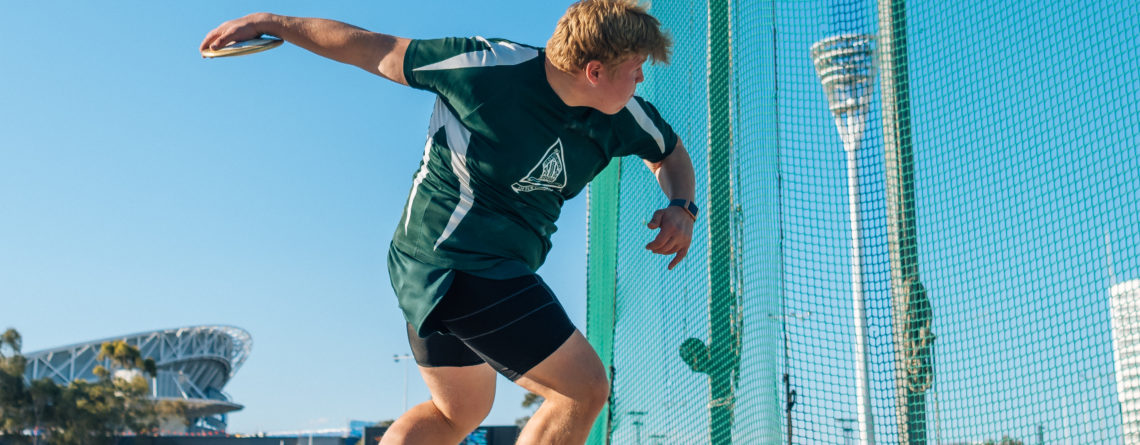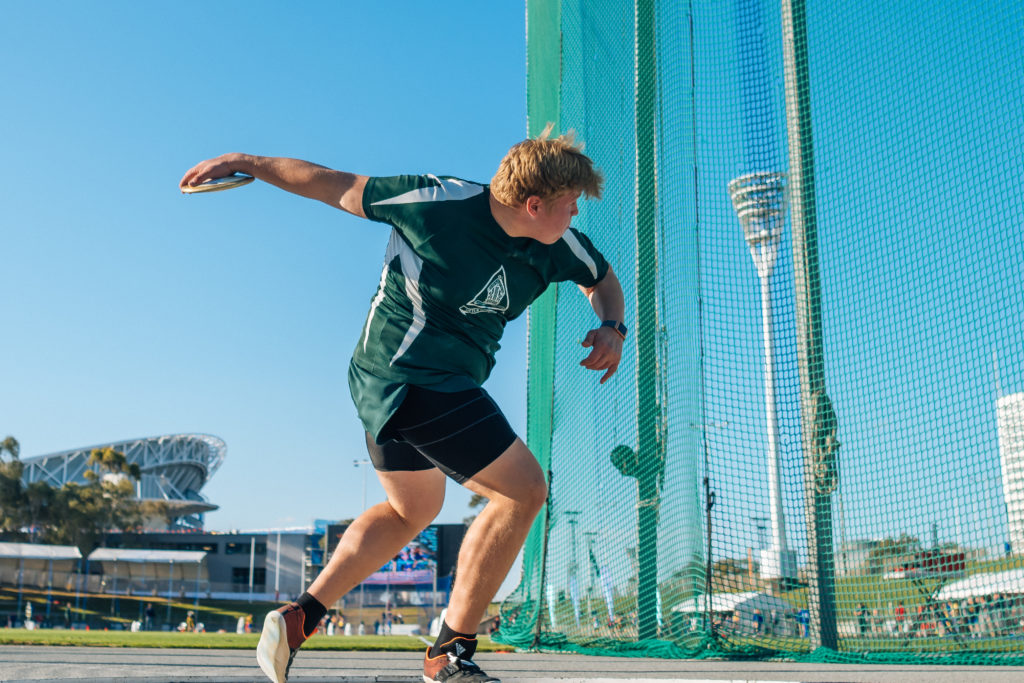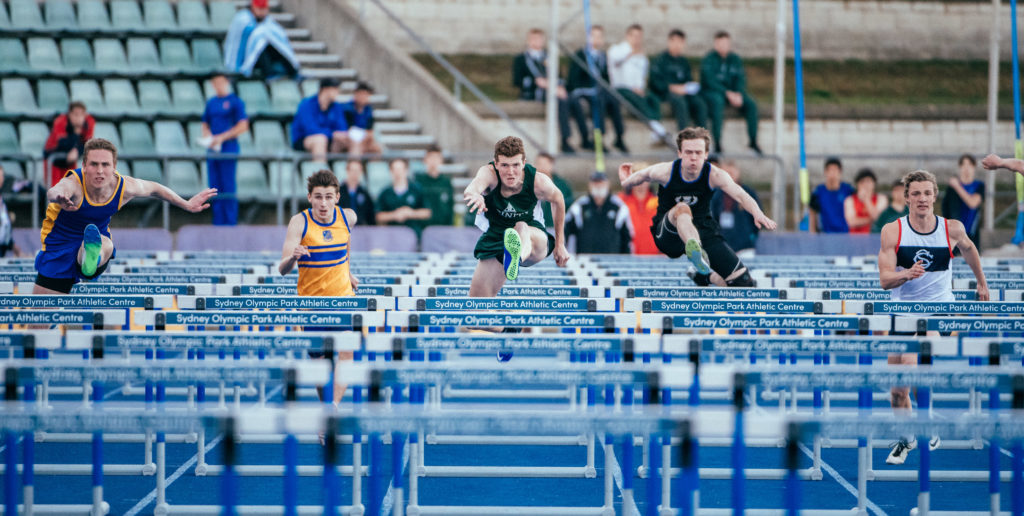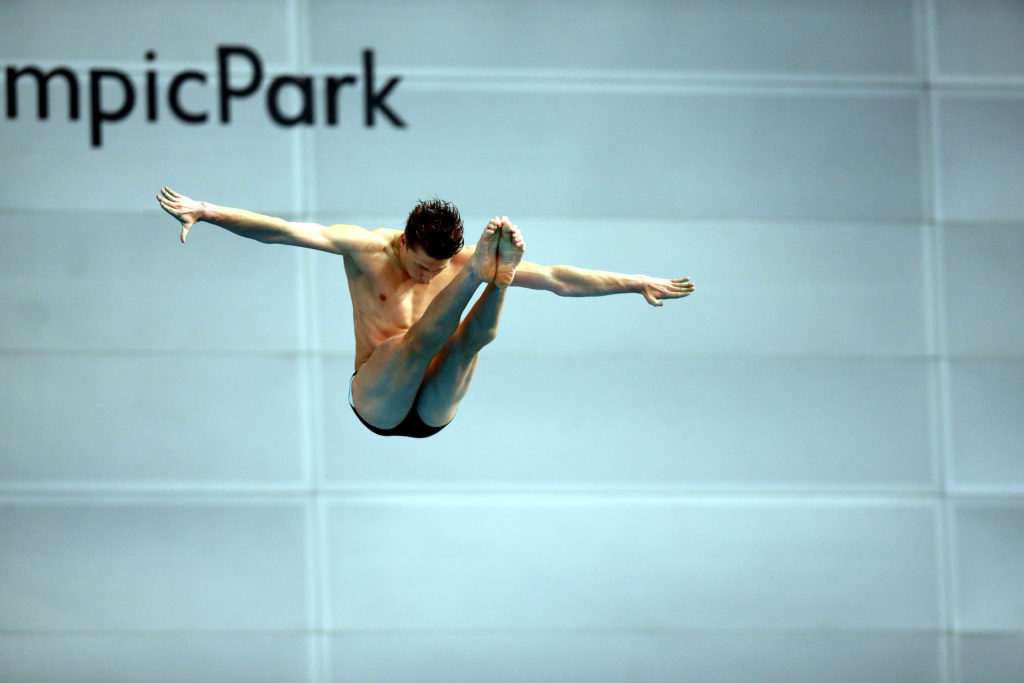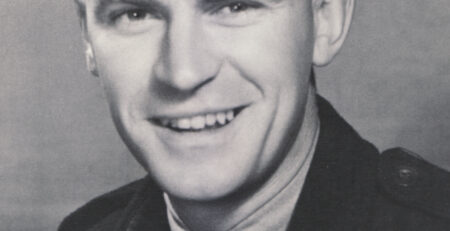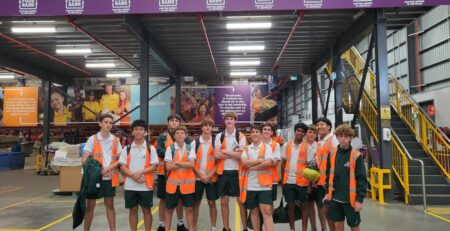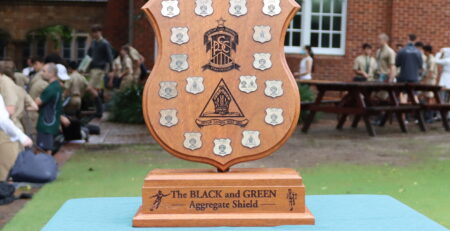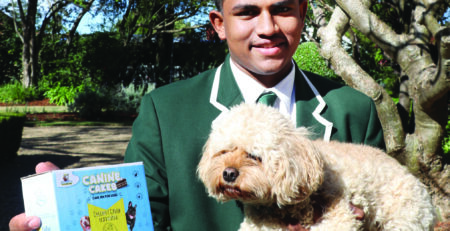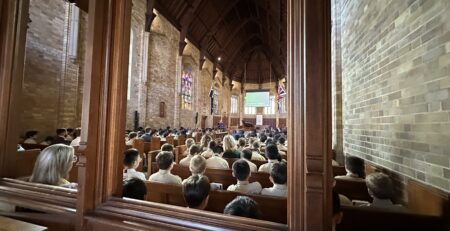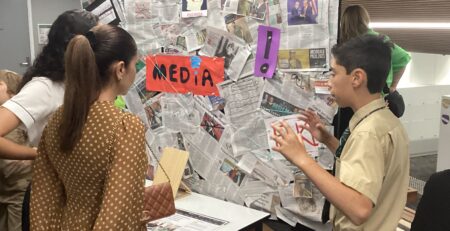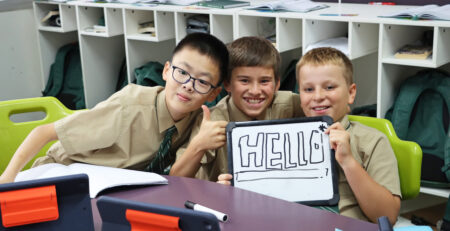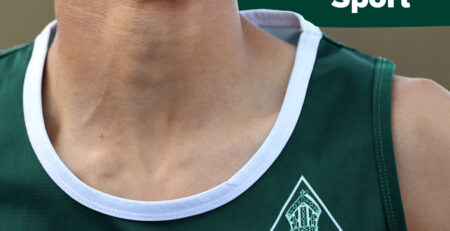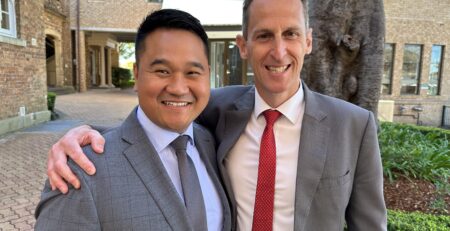Olympic pipeline primed for Paris
Trinity’s pathway to the field of dreams
The Olympic flame burns brightly at Trinity – so much that the dazzle of Tokyo could well be outshone in Paris in 2024.
A school that has produced 10 Olympians since 1956 has even more potential high-flyers in the wings, as it continues to offer boys ‘the dream’ – and the pathway to achieve it.
A dozen new potential Olympic contenders are already in Trinity’s elite sports pipeline, according to former Director of Athletics Andrew Murphy, who is now high performance coach with Athletics Australia.
Any of them could make their big breakthrough in Paris in 2024, following the example set in Tokyo last year by the School record-equalling trio of Rohan Browning, Oliver Hoare (both class of 2015), and Sam Fricker (2020).
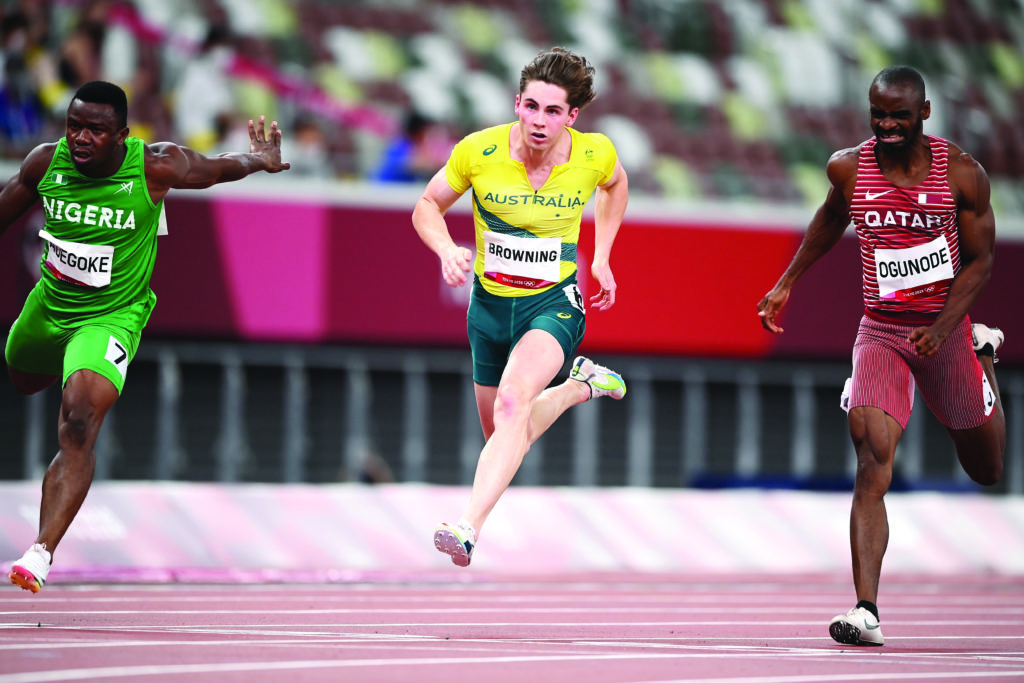
“There are others coming up underneath. In Track and Field quite a few boys could be knocking on the door for Paris. There are probably another 10 chasing it,” Mr Murphy said before joining the national athletics body.
“They are not yet at that (Olympic) level but they are trying.
“Having 10 or 15 Old Boys working to make it – that’s how you get three or four. It’s a numbers game.”
If Trinity’s Tokyo trio continue to develop – and they are all young enough to have their peak ahead of them – Paris could be a watershed occasion for the School.
Only once before – in 2004 in Athens – have three Trinitarians appeared at the same Olympics, a figure that could well be exceeded next time.
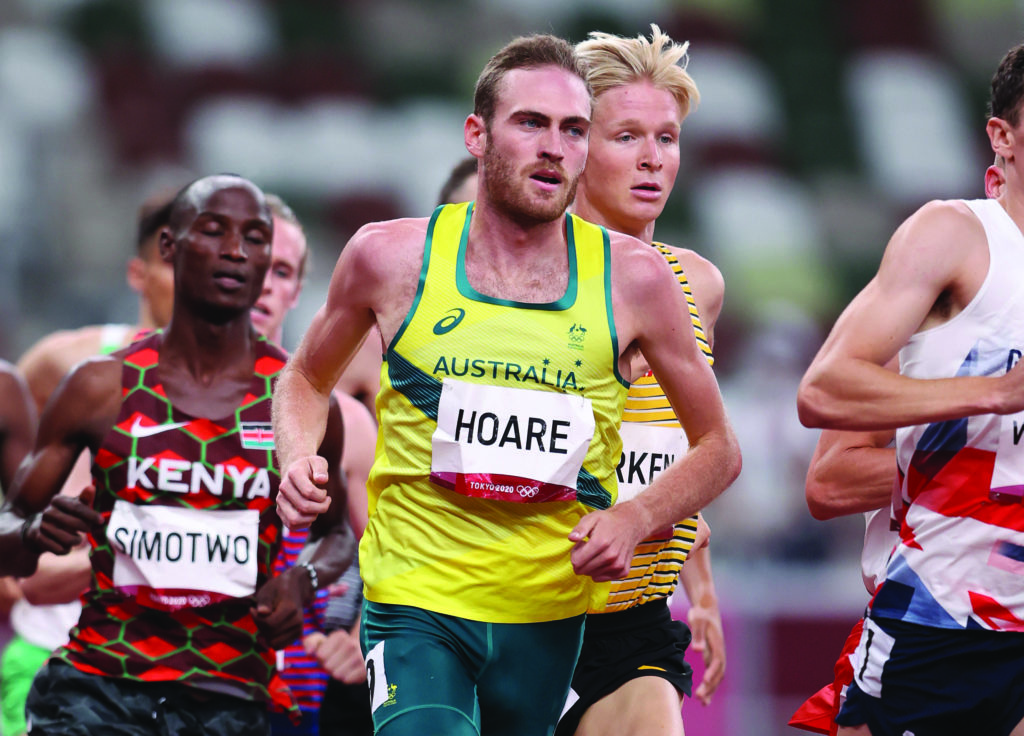
The Tokyo games underlined Trinity’s standing as Australia’s premier Track and Field school, which was well established before COVID-19 disrupted all competitions.
In recent years Trinity has won the CAS (Combined Associated Schools) competition, the state level schools competition, made a clean sweep of the national schools competition in all three age categories – Junior, Intermediate, and Senior – which had never been done before, and won the world schools competition in Croatia.
At least three Old Boys have records that already speak of promise at the highest level.
One is Connor Murphy (class of 2019), son of Andrew and his wife Liz, who runs Trinity’s CAS Track and Field programme.
Connor, a triple jumper like his father, won a silver medal at the 2021 national open championships, just short of a gold which would have meant virtual automatic Olympic selection.
“He is only about 40-50 cms off. That’s not much in triple jump; it’s like about 10cm in long jump,” said Mr Murphy, who competed at three Olympics himself.
“A bit of strength and technical development could get him there.”
Another is shot putter Alex Kolesnikoff (class of 2018), also a silver medallist at the 2021 Australian titles.
“He is obviously on a pathway in that direction. He’s still got to do it, but there is certainly enough time to get him to that level,” said Mr Murphy.
A third is Cameron Griffith (class of 2014), a middle-distance runner like Ollie Hoare who also went to the US to study and train.
“He is a similar ilk to Ollie, based in the US with a running club. He was in the mix for Tokyo and missed out.”
Athletics success at Trinity is no accident. It is carefully thought out, but it starts with simply getting boys involved without pressure.
The second stage is to get them involved in competitions and give them goals – state level, nationals, world juniors, Olympics.
“There’s a real pathway; Trinity offers those dreams to the boys and put them in the care of quality coaches.”
One whose dream carried him all the way to Tokyo was Rohan Browning, whose turn of speed was first spotted on the Rugby field by the man who, to this day, remains his one and only sprint coach.
Rohan fell short in the 100m semi-finals but won his heat in blazing style, claiming the scalp of Jamaican star Yohan Blake and setting a personal best (PB) of 10.01 seconds, making him the second fastest Australian ever behind Patrick Johnson.
“I am super proud of Rohan. He has a massive future on this stage,” said Mr Murphy.
“He will now believe 100 per cent that he belongs with the best.
“He is a home-grown Trinity boy who has become the fastest Australian ever at an international competition.
“He ran a PB at the biggest meet of his life. You can’t do any better than that. It’s the ultimate, and Rohan did it.”
Rohan described himself as a “blank canvas” when he came to Trinity in Year 9. He didn’t even know he had an interest in athletics but the School “got me as a 14-year-old boy and turned me into an elite athlete”.
“I don’t know of any school in the country where that could be facilitated.”
His mum was of a similar mind, saying that without Trinity he would never have made it to Tokyo.
“Had he not gone to the School, had he not met Murph and formed such a great partnership, there is no way he would have even gone to the Olympics,” said Liz Jackson.
“None of us ever dreamed the Olympic Games would be on the radar but things kept building and building, and he kept getting better.
“Really, Rohan didn’t choose athletics; athletics chose him.”
Olympics TV commentator Tamsyn Manou, noting that Rohan had achieved a 99.93 ATAR at school, played guitar, spoke some French, and was studying arts/law at Sydney University, asked: “Is there anything he can’t do?”
That comment reflected the Trinity credo of nurturing mind, body and spirit, all part of a balanced lifestyle.
“I spent 20 years competing at the highest level, and the times I was most successful were when I was doing other things like studying and working,” said Mr Murphy.
“You’ve got to find the sweet spot. You have to breathe and have goals outside the track. You’ve got to have other passions.”
Ollie Hoare did not quite manage a PB in Tokyo but he did become the first Trinitarian ever to run in an Olympic final, claiming a spot in the 1500m decider where he finished 11th in stamina-sapping heat and humidity.
“We are all super proud of him,” said the 24-year-old US-based runner’s mum Kate. “He gave it a crack, and that’s all you can ask for.”
She said Trinity had played an important part in the lives of both of her sons (Ollie’s younger brother Christopher was a national level swimmer).
“I am eternally grateful to the School,” she said.
“Without Trinity my boys wouldn’t be where they are. It was outstanding, and fantastic for Ollie. The whole environment was supportive and nurturing.”
She said Trinity’s team ethic in sport had helped Ollie move seamlessly into the US college NCAA competitions after he went to study economics at the University of Wisconsin.
“You might not want to run the 800 but you do it because it’s for the team,” she said.
“He ran the 800, the 1500 and the three (thousand metres). I don’t know how he did it but he wouldn’t have got to Wisconsin without Trinity. Not a chance.
“He took the risk and it has paid off. He has proved himself.”
Sam Fricker, the youngest of Trinity’s Olympic debutants at just 19, did not make it out of the 10m platform diving preliminary round. But he gained valuable experience, as well as a televised plug for his fledgling wheat straw business.
One commentator noted he had been so concerned about the environmental damage caused by plastic straws that he had started up his own green business selling biodegradable wheat straws.
“He’s trying to do something about it, and that’s inspirational,” the commentator said.
“I’m incredibly inspired by this young man of just 19 years of age.”
Sam, who started diving when he arrived at Trinity from Newcastle in Year 7, said he had felt the absence of his coach in Tokyo due to pandemic personnel cutbacks.
“But overall, it has been a beautiful experience. It has definitely been a dream come true.”
As Paris gets nearer, it’s time to dream again.

